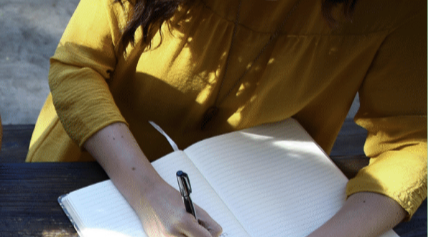a) Woden Community Service – New Path
New Path delivered by Woden Community Service is an early intervention recovery program for 18–35-year-olds whose ability to manage daily activities and to live independently in the community has been seriously affected by their mental health issues. Participants receive support through a range of co-designed activities linked to an individual recovery plan.
WCS worked closely with CHN to bring New Path and Continuity of Support together under the umbrella of the Commonwealth Psychosocial Support Program (CPSP). This has provided a single point of access and recovery-oriented time-limited support to a broader range of people, with timely re-entry if required. It has also provided a pathway to support participants to access the NDIS.In addition, the CPSP team used CHN’s additional funding to introduce the new Access Enabling stream. This stream assisted participants to get into the NDIS for longer term support, while maintaining a level of therapeutic intervention to continue the participant’s recovery journey. As a result, work was undertaken with 172 participants over 2,455 occasions of service, 1,630 through the New Path stream, 699 through the Continuity of Service Stream and 126 through Access Enabling.
Client Story
Jasmine* (not her real name) is a resilient young woman who embarked on a transformative journey with the New Path program to help overcome the challenges of selective mutism. Jasmine initially struggled interacting with others, relying solely on typing messages to her father to communicate on her behalf, while spending most of her time at home.
Through intensive weekly support and careful planning, Jasmine began exploring her interests in the community and joined a creative group. Initially, making eye contact and engaging with other group members seemed daunting, but with time and guidance, she slowly started connecting with her peers. One significant step forward was when Jasmine was enrolled in courses at the Canberra Institute of Technology (CIT), and her worker attended classes with her, demonstrating her communication method, where Jasmine typed her responses while her worker interacted verbally. This technique not only helped Jasmine feel more at ease but also fostered understanding and acceptance among her classmates.
Recognising the importance of independence, the focus of Jasmine’s recovery shifted towards building life skills essential for adulthood. Her worker provided support to navigate public transportation, obtain a library card, open a bank account, and successfully enrol at CIT. These achievements empowered Jasmine and helped her feel more capable of facing life’s challenges. After a period of success and growth, Jasmine felt a setback after 6 months and realised the weight of a lifetime with selective mutism. The anxiety of not being able to communicate verbally hindered her academic progress at CIT and created uncertainties about her future.
Returning to New Path for a second period of support, Jasmine has since developed the confidence to attend Drop-in-group sessions independently. Her delightful sense of humour and exceptional skills in board games made her well-liked by other group members. Most importantly, Jasmine was receptive to the idea of treatment, understanding its potential to transform her life. With the assistance of New Path, Jasmine’s dedicated recovery worker helped her find a skilled therapist in Sydney. Jasmine accessed to 12 months of specialised cognitive-behavioural therapy with a clinical psychologist. This step would serve as the foundation for her personal growth and pave the way for a flourishing life. Jasmine’s journey is a shining example of how the extended duration of New Path can yield sustainable and life-altering recovery outcomes. Her determination, coupled with the unwavering support from her recovery worker and the program, helped her to manage selective mutism and embrace a future full of possibilities.

b) Flourish – Bloom Healthy Living
The Bloom Health Living Program delivered by Flourish is a recovery-based peer-led program designed for 35-64+ year old participants that promotes healthy living. The program can help build life skills, promote good health, support engagement in education, volunteering or employment, and help participants learn how to better manage their finances. Peer Workers conduct initial assessments and are key contributors in developing monthly group calendars, which are co-designed with the people accessing the service.
Over the last year, 188 people were supported through 3,557 service contacts, totalling 3,285 hours of support. However, clients are still impacted by the absence of long-term psychosocial support services, the length of the NDIS application processes, a person’s ineligibility for access to the NDIS and the extended waiting lists of other short-term service providers within the region. Therefore, several participants remain within the program for longer than 3 to 6 months. However, this number has been reducing and additional network pathways have been established with Woden Community Service, Directions, Toora and Calvary to increase cross-referrals and provide an increased network of supports to participants.
In addition, Flourish Australia provided 50 iPads with data access to participants which improved participant capacity and agency regarding support-based goals such as:
- increased access to and engagement with education opportunities
- employment identification, management and completion of applications
- increased access to online agency portals (e.g. myGov, Centrelink, Access Canberra)
- increased autonomy and supports for development of daily living skills.
Client Story
Eri (* not her real name) identified several barriers to community access, also finding it difficult to keep track of financial stresses. She has since received support from Flourish to attend appointments and build capacity to better navigate public transport systems. With the help of the CPS iPad, Eri said she’s found it easier to keep track of her bills and maintains connections with others. She’s found several online word games that she likes to complete and talk to friends about. She has also been able to maintain access to her online religious community, reading the bible and attending some church sessions online on the days she finds it difficult to go out. Eri now feels like she is better able to organise her day and self-motivate, making it easier to break down and meet larger goals.

c) Directions – Alongside
Alongside began in January 2023, under a CPSP grant. The service offered integrated care, working closely with Directions’ Psychiatrist, primary care health team and counselling and case management teams to meet clients’ complex needs. Services were provided to 28 clients, with 206 direct one-on-one occasions of service.
Client story
Olivia (* not her real name) is a young female living in shared mental health accommodation. The client was engaged in sex work and chose to work with a female peer mental health worker, who she knew to have extensive experience in this area. The client had multiple diagnoses including post-traumatic stress, borderline personality disorder, autism and alcohol and sex dependency. She uses self-harm as a coping mechanism when stressed, and has experienced domestic and sexual violence in her personal and work relationships.
A support plan focusing on living skills, healthy eating, personal hygiene, healthy boundaries and self-compassion was developed between Olivia and the peer mental health worker. Olivia has identified feeling better in her body, managing her mood and ‘keeping on top of day-to-day stuff’ as key goals.
Olivia was supported to access health, sexual health, legal and trauma services. She was also helped to take on some behavioural activation and enjoyable activities to lift her mood and create routine in her days.

